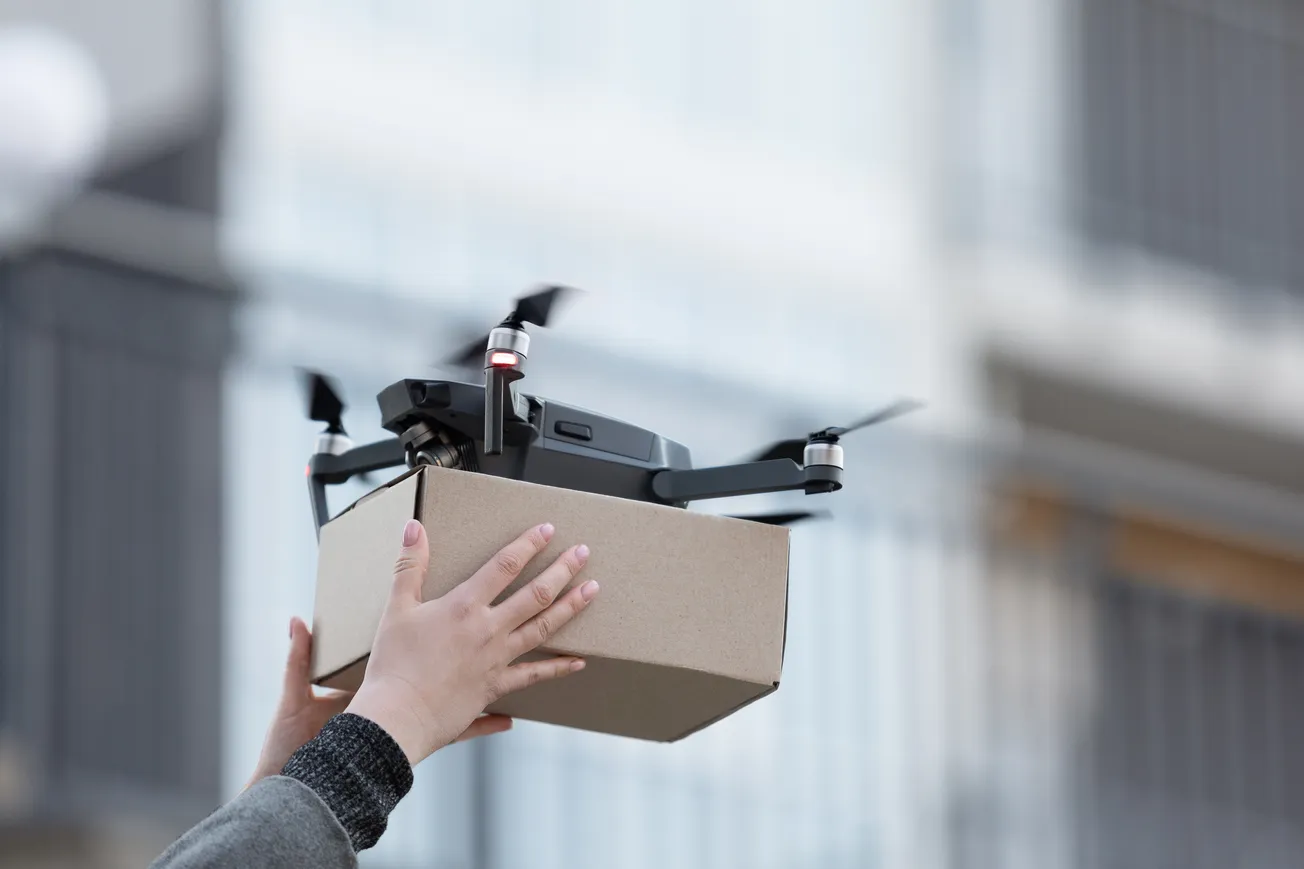Walmart has clipped the wings of a delivery-drone company they had originally invested in as part of a pilot program.
Walmart's foray into drone delivery began in 2020 when it partnered with DroneUp to test deliveries of at-home COVID-19 test kits from Walmart stores. Following the success of these trials, Walmart invested in DroneUp in 2021, marking a significant step toward integrating drone technology into its delivery infrastructure. The partnership aimed to leverage DroneUp's expertise to facilitate rapid and efficient deliveries, enhancing customer convenience.
In May 2022, Walmart announced an expansion of its delivery network to 34 sites by the end of the year, aiming to provide drone delivery services to 4 million U.S. households across six states: Arizona, Arkansas, Florida, Texas, Utah, and Virginia. This initiative underscored Walmart's commitment to exploring innovative delivery solutions to meet evolving consumer demands.
Despite the initial enthusiasm, the partnership faced challenges. By August 2024, Walmart began scaling back its drone delivery operations with DroneUp in certain markets due to sustainability issues, primarily stemming from low consumer demand and high operational costs.
Reports indicated that the cost per drone delivery was approximately $30 per package, a figure that exceeded economic viability thresholds. Consequently, Walmart and DroneUp decided to end their partnership in early 2025, with operations ceasing in multiple locations, including Phoenix, Salt Lake City, and Tampa.
This decision resulted in the closure of 18 Walmart delivery hubs and a reduction in DroneUp's workforce by 17%, affecting 70 employees.
Walmart's Collaborations with Other Drone Partners
Undeterred by the challenges faced with DroneUp, Walmart continued to explore drone delivery through collaborations with other partners.
In August 2023, Walmart teamed up with Wing to offer drone delivery services from two stores in the Dallas metro area, aiming to reach an additional 60,000 homes. This partnership highlighted Walmart's strategy to diversify its drone delivery capabilities and learn from different operational models.
Walmart also engaged with Zipline, a company renowned for its drone delivery services, particularly in the medical field. This collaboration focused on leveraging Zipline's expertise to enhance Walmart's delivery network, especially in areas where traditional delivery methods faced logistical challenges.
Trends in Retail Drone Delivery
The pursuit of drone delivery by major retailers like Walmart reflects broader trends in the retail and logistics sectors. Improvements in drone technology, including enhanced battery life, payload capacity, and navigation systems, have made drone delivery more feasible. Companies are investing in research and development to overcome technical barriers and improve efficiency.
Regulatory bodies, such as the Federal Aviation Administration in the United States, are progressively establishing frameworks to integrate drones into national airspace. Policies permitting operations beyond the visual line of sight are crucial for scaling drone delivery services.
The demand for faster delivery options has increased, with consumers expecting quick and reliable service. Drones offer the potential to meet these expectations, particularly for same-day or emergency deliveries.
Drones present an eco-friendly alternative to traditional delivery vehicles, potentially reducing carbon emissions and contributing to sustainability goals. Studies have indicated that drone deliveries can significantly lower greenhouse gas emissions compared to truck deliveries, especially for small packages.
Challenges Facing Drone Delivery Implementation
Despite the promising aspects, several challenges hinder the widespread adoption of drone delivery.
High costs associated with drone deliveries, as evidenced by Walmart's experience with DroneUp, pose significant hurdles. Achieving cost-effective scalability remains a critical challenge for retailers.
Navigating the complex regulatory landscape requires companies to invest time and resources to ensure compliance, which can delay implementation.
Concerns regarding privacy, safety, and noise pollution can affect public perception and acceptance of drone delivery services. Addressing these concerns is essential for broader adoption.
Future Potential of Drone Delivery in Retail
Looking ahead, the future of drone delivery in retail appears cautiously optimistic. Retailers are likely to continue forming strategic partnerships with drone technology companies to leverage specialized expertise and share the risks associated with implementation.
Implementing pilot programs in select markets allows retailers to test and refine drone delivery services, gathering valuable data to inform broader rollouts.
Combining drones with other emerging technologies, such as artificial intelligence and autonomous vehicles, could enhance the efficiency and reliability of delivery networks.
Drones may find optimal utility in specific scenarios, such as delivering medical supplies in remote areas or providing rapid delivery of essential items, where traditional logistics are less effective.
The journey of Walmart's engagement with drone delivery, particularly through its partnership with DroneUp, underscores both the potential and the challenges of integrating drones into retail logistics. While technological advancements and evolving consumer expectations drive the interest in drone delivery, practical hurdles like operational costs and regulatory complexities cannot be overlooked. As the industry continues to innovate and adapt, the experiences of major retailers like Walmart will provide valuable insights into the viability and future trajectory of drone delivery services in the retail sector.









